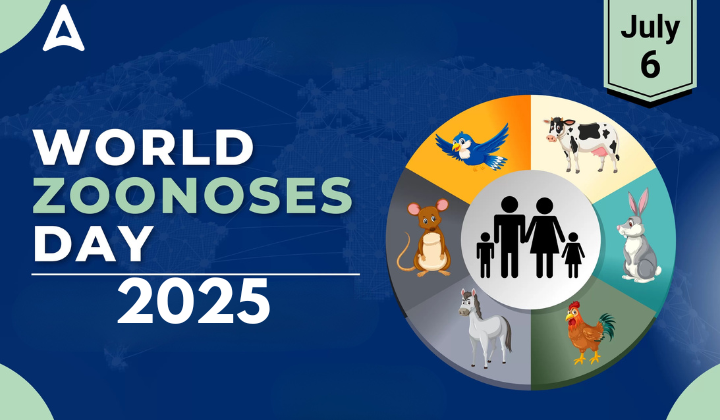World Zoonoses Day 2025 takes place on 6 July to spread awareness about diseases that can pass between animals and humans. It teaches us how to prevent these illnesses and explains why it’s important to keep both people and animals healthy. In this article, we’ll explore the key details of this day. In 2025, this day reminds us to stay safe and learn how to stop these diseases from spreading.
World Zoonoses Day 2025
Every year on 6 July, World Zoonoses Day is held to help people understand diseases that spread from animals to humans and how to prevent them. These are called zoonotic diseases. They are caused by germs like bacteria, viruses, fungi, or parasites. People can catch them by touching or being near animals such as chickens, rats, frogs, lizards, or insects. Sometimes, these diseases spread through mosquito bites. COVID-19 is one example it likely started in bats.
What is a Zoonotic Disease?
The word “Zoonoses” comes from two Greek words “Zoon” meaning animal, and “nosos” meaning disease. So, a zoonotic disease is an illness that can spread between animals and humans. These diseases can pass from animals to people, and sometimes from people back to animals. Most of them come from animals that have backbones, such as dogs, cows, birds, or bats. According to the World Health Organisation, more than 61% of human pathogens originate from zoonotic.
History of World Zoonoses Day 2025
On 6 July each year, we remember World Zoonoses Day. This day is important because it reminds us how science helped save a life. In 1885, a scientist named Louis Pasteur gave the first rabies vaccine to a boy who was bitten by a sick dog. The vaccine worked, and the boy got better. That’s why we now have World Zoonoses Day to teach people about diseases that can spread from animals to humans. It also shows us how things such as vaccines, cleanliness, and learning more about animals can help us stay safe and healthy.

Theme of World Zoonoses Day 2025
The official theme for World Zoonoses Day 2025 is not yet announced. In recent years, themes such as “One World, One Health: Prevent Zoonoses” (2023) and “Preventing the Spread of Zoonotic Diseases” (2024) highlight the importance of working together to stop diseases that pass from animals to people. We will update this article as soon as the 2025 theme becomes available.
Importance of World Zoonoses Day 2025
Spreads Awareness Helps people learn about zoonotic diseases—those that can spread between animals and humans.
Celebrates Science Honors Louis Pasteur’s first successful rabies vaccine in 1885, which saved a life and changed medicine forever.
Promotes Protection Encourages actions like vaccination, cleanliness, and staying informed to stop outbreaks early.
Supports ‘One Health’ Reminds us that human, animal, and environmental health are all connected.
Prepares the World With most new diseases coming from animals, it pushes for stronger health systems and teamwork across countries.
| Related Posts | |
| Important Days in May 2025 | Important Days in June 2025 |
| Bank Holidays in July 2025 | Important Days and Dates in 2025 |
| World Rainforest Day 2025 | |




 NFL Syllabus 2026, Management Trainee Ex...
NFL Syllabus 2026, Management Trainee Ex...
 IBPS Deputy Manager AI Application Devel...
IBPS Deputy Manager AI Application Devel...
 Daily Current Affairs and GK Updates (26...
Daily Current Affairs and GK Updates (26...








